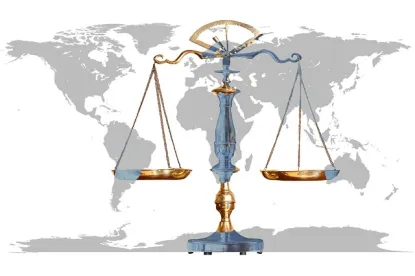The Trump Administration rule delaying the International Entrepreneur Rule (IER) until March 14, 2018, had been implemented without following the necessary Administrative Procedures Act (APA) Notice and Comment Period regulations and was therefore illegal, a federal court has found.
The Administration has not yet commented on the court’s ruling, but likely will appeal the decision.
Beginning July 17, 2017, the Obama-era IER was to start allowing promising entrepreneursto come or remain in the U.S. to expand the economy by growing their companies. To be eligible, applicants/entrepreneurs had to prove the potential of their start-ups based upon qualified investments and other compelling evidence. Upon proving significant potential, the applicant could be granted parole and work authorization for up to five years. The IER amended the regulations on discretionary parole by adding provisions that would allow the use of parole on a case-by-case basis for entrepreneurs who can “demonstrate through evidence of substantial and demonstrated potential for rapid business growth and job creation that they would provide a significant public benefit to the United States.” The additional regulation was to be published at 8 CFR 212.19.
This merit-based approach to using the parole authority would seem to be aligned with President Donald Trump’s general desire for a merit-based approach to immigration. However, Trump is also focused on strict enforcement of the immigration laws and eliminating the expansion of discretionary benefits such as parole. Just before the IER was to go into effect, the Administration introduced the Delay Rule. Not only did the Delay Rule delay the start date of the IER to March 14, 2018, but the Administration noted at the time that it was likely to rescind the IER altogether.
National Venture Capital Association, along with two foreign entrepreneurs, filed suit in the U.S. District Court in D.C. to force the implementation of the IER. “The controversy boil[ed] down to two competing rules,” District Judge James E. Boasberg observed. Because the Delay Rule had been implemented without following the necessary APA regulations, Judge Boasberg found it was illegal.
The Administration argued that the costs involved and the confusion that would be engendered by implementing a rule they planned to rescind constituted “good cause” for skipping the Notice and Comment period. But the court disagreed, particularly noting the government could not rely on its own delay of close to six months from January 20, 2017, until July 2017, to argue “good cause.”
The Administration’s next steps are unknown. It might not be difficult for the Department of Homeland Security to start the program. Staff training would be required but an IER Form (Form I-941) has already been created although not implemented and changes have already been formulated although not implemented to Form I-9 and the Lists of Acceptable Documents to account for the IER.




 />i
/>i

